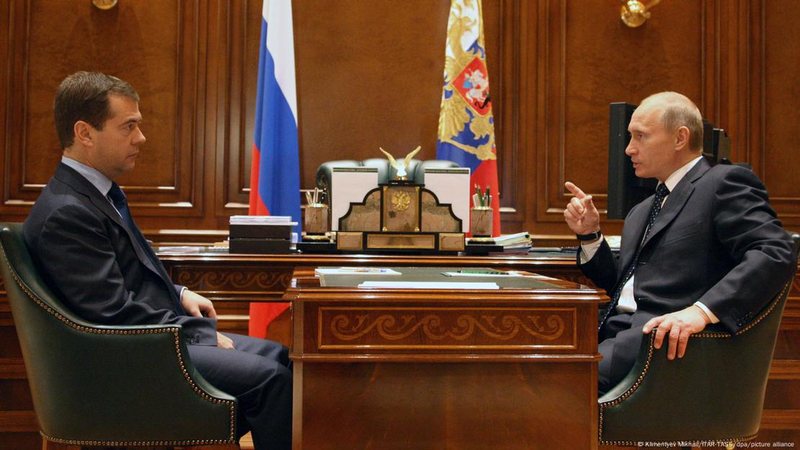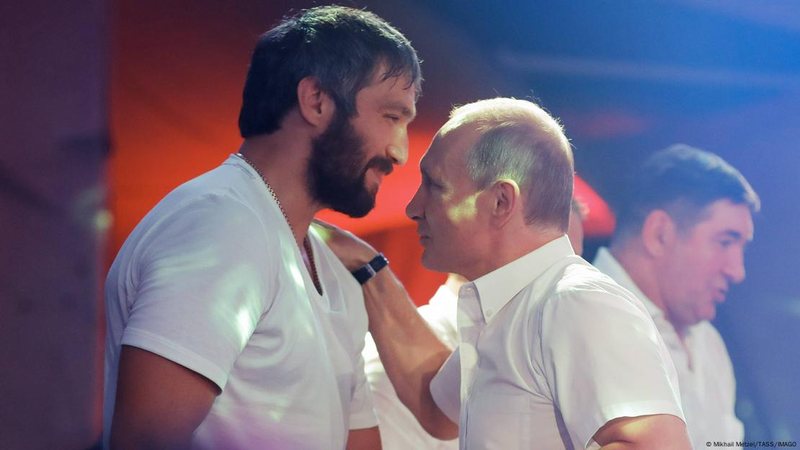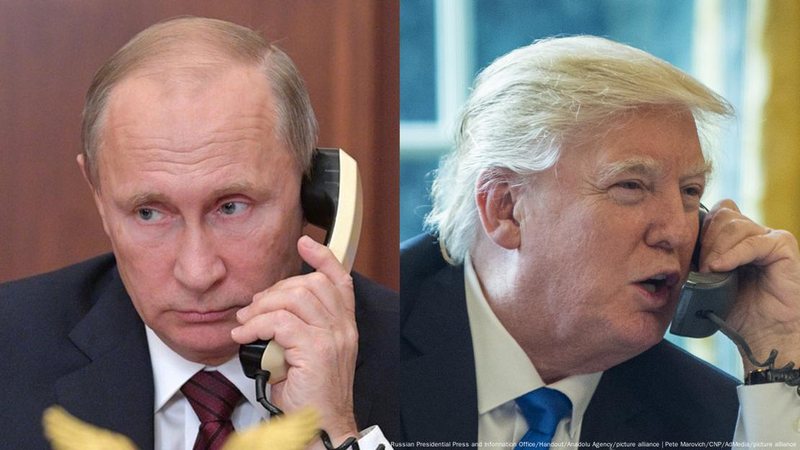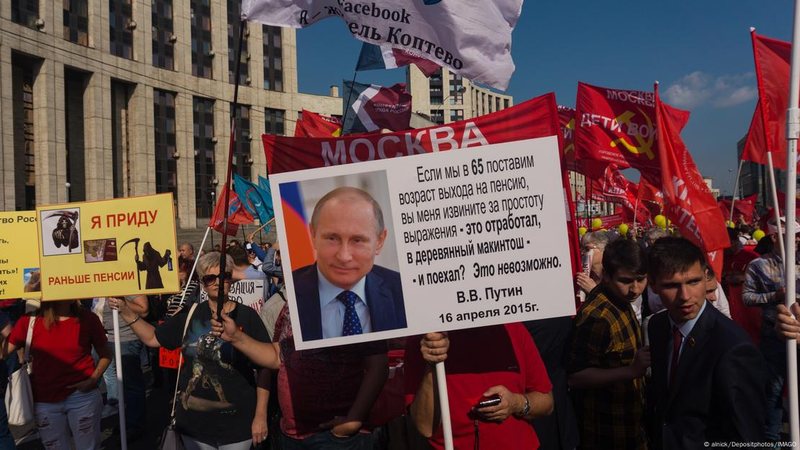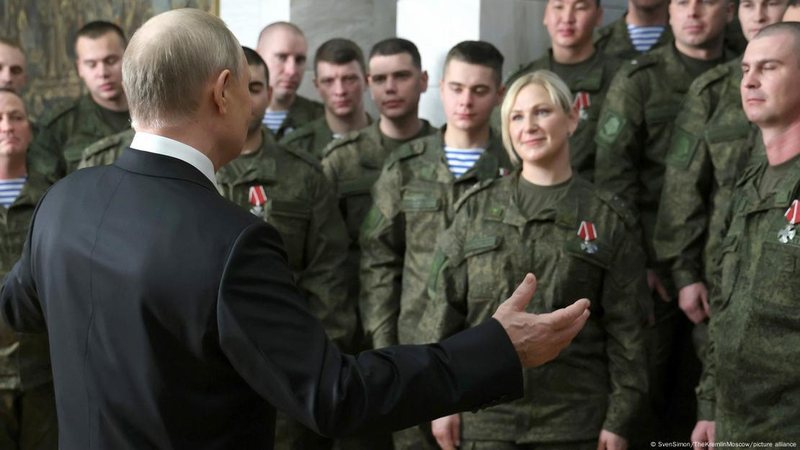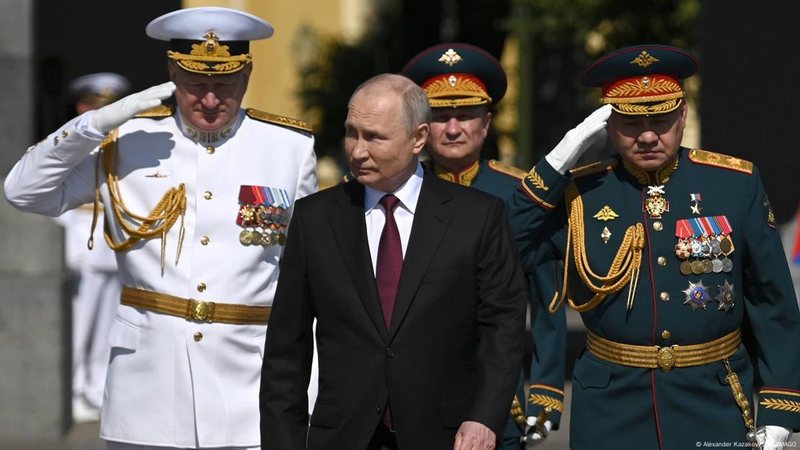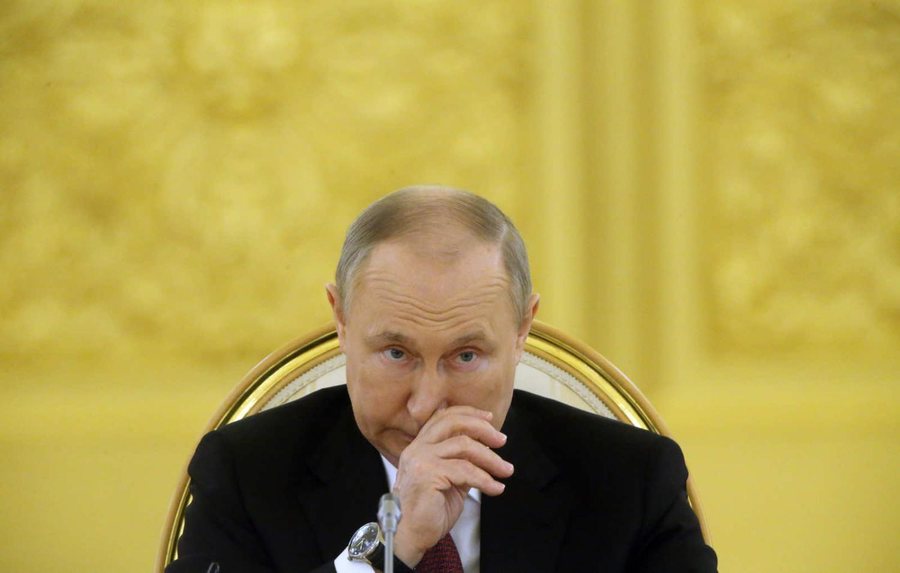
On March 26, 2000, Vladimir Putin was elected president of Russia. Today, he rules as a dictator. A retrospective look at how the former KGB officer has steadily expanded his power.
In fact, it was just a formality: in the Russian presidential election on March 26, 2000, Vladimir Putin was confirmed in office with 52.9 percent of the vote. The result was known from the beginning. Because when Boris Yeltsin suddenly resigned on December 31, 1999, Putin, who had been prime minister since August 9, 1999, also took on the duties of president according to the constitution.
Putin has been in power for 25 years. To become the autocratic and undisputed ruler of Russia, he has acted strategically - even though he has not been in the presidential palace for several years.
Changing chairs in the Kremlin
Since the Russian constitution at the time did not allow the president to serve more than two consecutive terms, the elections of May 7, 2008 brought a change of office. Putin's confidant, Dmitry Medvedev, former chairman of Gazprom's supervisory board, replaced Putin in office.
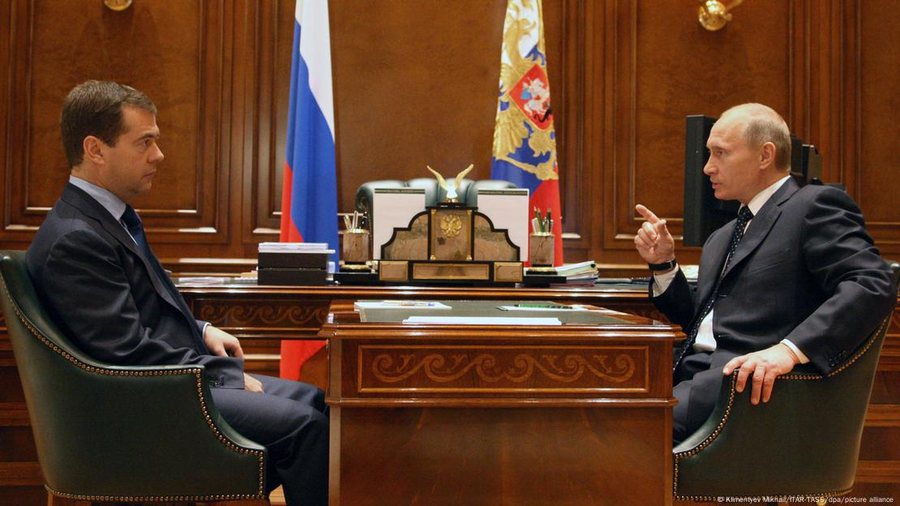
On Medvedev's proposal, the Russian Duma elected Putin prime minister a day later with 87.1 percent of the vote. Although Medvedev held the highest office, Putin was pulling strings in the Kremlin from the background.
The foundation of Putin's power: The elimination of regional autonomy
In these 25 years, the Russian president has turned the country into "the strongest personalized dictatorship in the world," says Russian political scientist Mikhail Komin. "From the very beginning, he has had the goal of transforming democracy in his favor. Today, all power is concentrated in the hands of a single person, in the hands of Putin." It all started with the elimination of "regional autonomy," Komin recalls: "One of the main reforms in Putin's first term was the establishment of so-called presidential representatives in the regions." The Kremlin thus created an instrument of control in the regions - a cornerstone for cementing power.
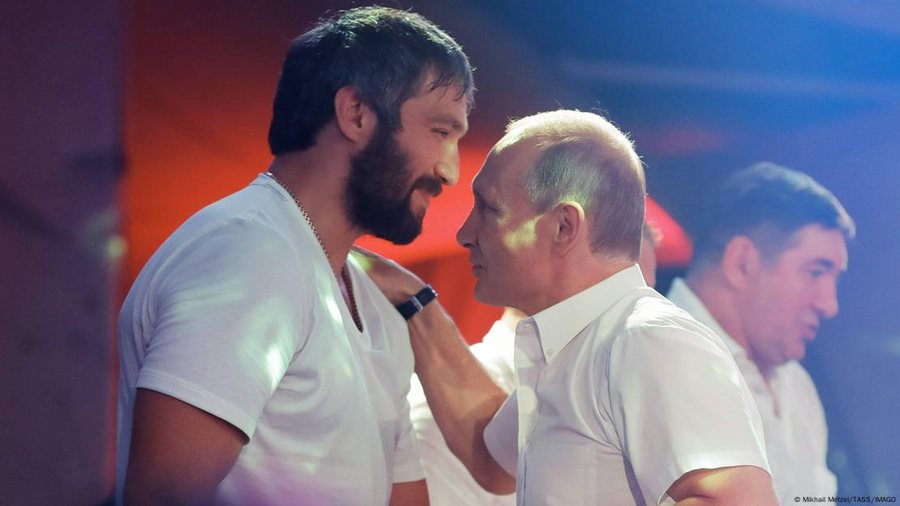
This assessment is also made by the Russian political scientist living in Finland, Grigory Nishnikov: "If we remember the Russia of Putin's early years, we think of several autonomous centers of power, whether constitutional or even informal, such as the oligarchs. They all constituted a kind of counterweight to the Kremlin. "Putin destroyed all of this, centralized everything and directed the system of power in Russia towards himself," says Nizhnikov in an interview with DW.
Putin and Trump: ideal brothers?
In foreign policy, there is a rapprochement between the US and Russia, which began during the first term of US President Donald Trump (2017 - 2021). Their first meeting took place in July 2018 at the Helsinki summit. "For Putin, Trump is the greatest gift of his political life," says political scientist and historian Helmut Müller-Enbergs in an interview with the news platform T-Online.
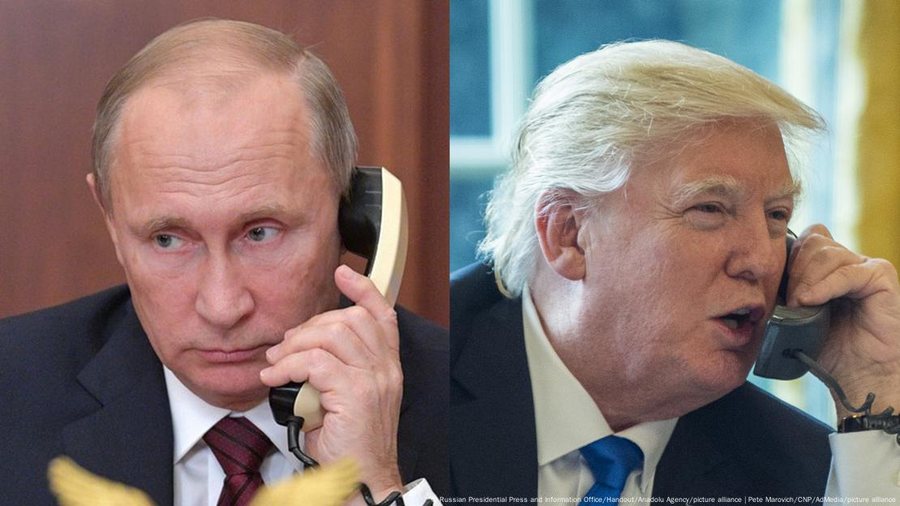
In the negotiations for the ceasefire in Ukraine, Putin offered Trump "as if to say mouse au chocolat - the raw materials and the prospect of fulfilling his election promise," says the expert from the University of Southern Denmark. Under international law, he has no right to do so.
Kremlin spokesman Dmitry Peskov recently hinted to the international press that Trump and Putin have good relations and may speak to each other more often than previously assumed.
The power apparatus does not tolerate any opposition.
Putin's rise to power, according to experts, is based on military threats and repression, both domestic and foreign policy. According to expert Nizhnikov, there have been many events in the past quarter century that have posed a threat to Putin.
These include the protests after the 2011 parliamentary elections on Bolotnaya Square in Moscow, the risk of an unstable situation in Crimea after the annexation of the Ukrainian peninsula in 2014, the unrest following the controversial pension reform in 2018, Navalny's protests across Russia in the following years, and the invasion of Ukraine, which was accompanied by protests on the streets of the metropolises of Moscow and St. Petersburg.
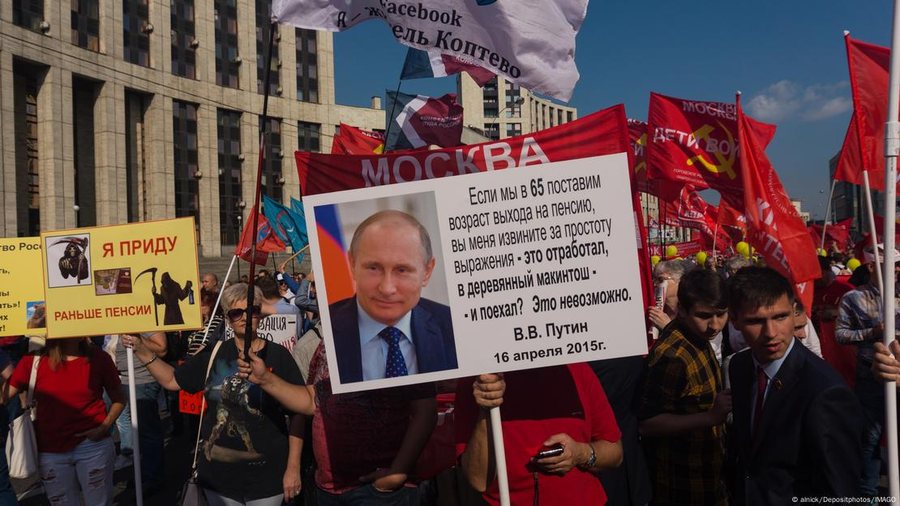
But every popular resistance was followed by even stronger repression, says political scientist Nizhnikov. And "with each of these events, new opponents were constantly eliminated." So today there is no one left who can oppose Putin.
Another important factor in Putin's retention of power is the deliberate weakening of the courts in his second term, notes Mikhail Komin. Russian courts today are no longer independent, he criticizes.
Added to this is the change in the electoral system in favor of Vladimir Putin and his ruling party "United Russia". "Now the ruling party dominates thanks to the system of suppressing the opposition, not thanks to social issues, which played a role in Putin's first two terms," says the political scientist.
Instead of asserting himself over the democratic opposition, Putin has created a shadow cabinet around himself, says Russian sociologist Alexander Bikbov. The president has gathered into this inner circle people who share his specific business interests. Their firms have won major state contracts and have enriched themselves in the process, says Bikbov: "Putin always holds all the reins in his hands and is personally involved in business."
Manipulation of collective historical memory
Society is being sold the image of a Russia where the state has played only a positive role throughout history. Everything negative is being eliminated, all past conflicts are being erased, says Bikbov. He calls it "manipulation of collective historical memory." This, too, he believes, only strengthens Putin's power.
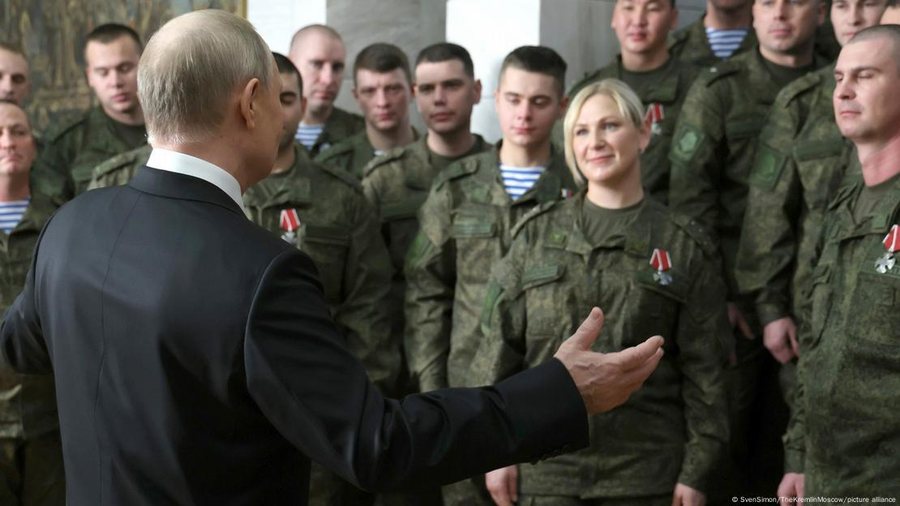
As an example, the sociologist cites the closure of the KGB archives to the public, which contain "dark chapters of Russian history." Bikbov calls the image of Russia under Putin, who himself was the head of the KGB, "the image of the golden rooster," referring to a character from Russian fairy tales. The golden rooster means "a happy Russia alone."
A country, seen through rose-colored glasses, where the Tsar's family is strangely presented alongside the communist dictator Stalin as the guardians of the same traditions - even though the two represented completely different political forces in Russian history.
The end of Putin's rule is nowhere in sight
All three experts interviewed by DW believe that these trends will only strengthen in the future and that Putin will remain in power for a long time. "The problem is that there is no viable candidate and no place for him. The last election that Putin actually won was in 2004. Everything else was unfair," complains Mikhail Komin.
"Putin was elected this March for the next six years," the expert estimates, "but 2030 will not be the last year of his presidency. "I think he will continue for another term. His time in power will be limited only by his physical age."
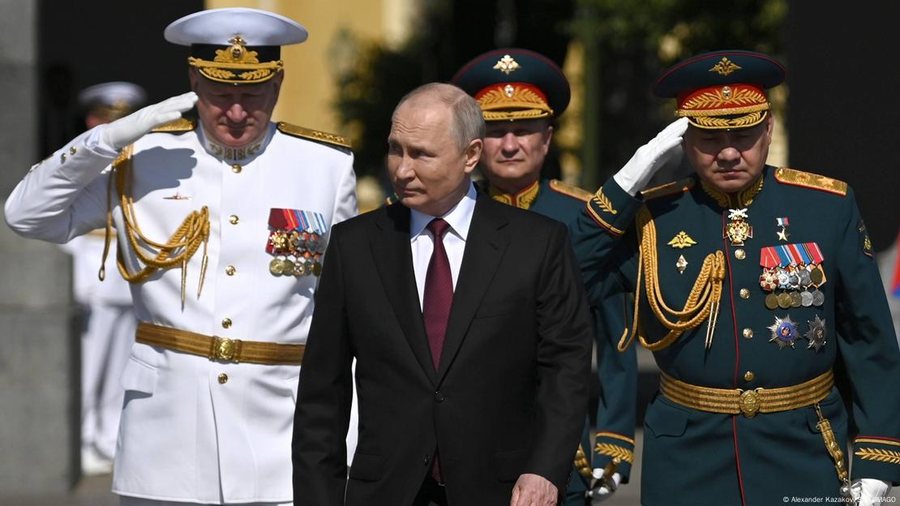
"Grigory Nishnikov also complains that Russians see no alternative to Putin and are afraid of change: 'Okay, people say, we want the war to end, but what comes next? If Putin leaves, even worse thieves will come to power, who will rob the country even more. The image that the government cultivates is: today's stability is more important than tomorrow's changes.'"
Nizhnikov notes that in Russia there has always been a need for a strong hand: "A strong leading personality should always make decisions and solve problems. In case of need, Russians blame the governors and not the president, according to the motto: if only Putin knew this, he would solve the problem immediately!" This is a very old Russian tradition. /DW/ (A2 Televizion)

